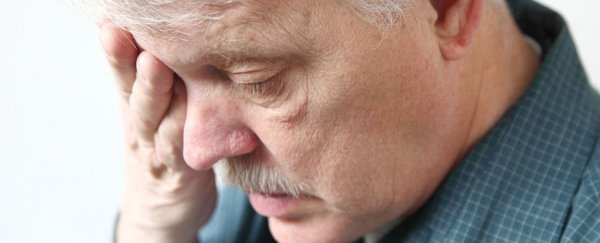People who experience chronic fatigue syndrome (CFS), also known as myalgic encephalomyelitis (ME), describe the illness as a terrible physical and mental burden that can make even basic tasks like standing and walking too painful or difficult to achieve.
So the news this week that two separate treatments offer hope to those with chronic fatigue by offering long-term benefits should have been a positive development. But while the research has been accepted in some quarters, others in the CFS and ME community, including the ME Association in the UK, have strongly criticised the study.
Researchers from a number of universities in the UK conducted a follow-up on patients who took part in a 2011 study that examined the effects of four potential treatments for chronic fatigue syndrome. The 2011 study reported that two of the treatments – cognitive behavioural therapy (CBT) and graded exercise therapy (GET) – achieved better outcomes than the alternative treatments after one year.
In the follow-up, the researchers wanted to examine whether these outcomes persisted 2.5 years later. According to the authors, who were able to contact three quarters of those involved in the 2011 study, the benefits do indeed persist, suggesting that CBT and GET are preferable treatments when compared with their alternatives, standard medical care and adaptive pacing therapy.
"The finding that participants who had cognitive behavioural therapy and graded exercise therapy had maintained their improvement over two years after entering the trial tells us that these treatments can improve the long-term health of people with CFS," said Michael Sharpe, a professor of psychiatry at the University of Oxford.
The researchers say there were no significant differences in the numbers of those reporting a long-term deterioration in general health (about 10 percent of each treatment group), which they suggest is evidence that CBT and GET do not worsen conditions for chronic fatigue syndrome patients.
"Finding no significant differences in the proportions getting worse over time is a reassurance for those who worry that some of these treatments might make things worse," said Peter White, a professor from the Queen Mary University of London. "But it is also a reminder that these treatments do not help everybody, and more research is needed into finding other treatments that help."
Despite the researchers' concessions that the treatment don't work for everybody who experiences chronic fatigue, a vocal contingent are critical of the 2011 study and its recently published follow-up.
David Tuller, an academic coordinator at the University of California, Berkeley has run a sustained commentary on the shortcomings of the studies, and he's been joined by the ME Association, who have opposed the conclusions of the research.
"Our position is based on consistent and robust evidence on activity management collected from large numbers of people with ME/CFS – with our latest report indicating that over 70 percent found that GET made their symptoms worse," writes Charles Shepherd, a doctor and medical adviser to the ME Association.
"Reputable research has demonstrated that there are significant abnormalities in the muscle, brain and immune system – all of which are almost certainly involved in the production of ME/CFS symptoms, including exercise-induced fatigue."
In addition to criticising GET, Shepherd says the promotion of CBT is equally damaging, arguing the treatment is "based on a seriously flawed hypothesis – in this case the idea that ME/CFS is a psychological problem that is maintained by abnormal illness beliefs and behaviours".
In response to criticism directed at their study, the researchers have defended their conclusions and sought to redirect the attention onto the significant – if far from universal – benefits CBT and GET does offer some people.
"These are not magic cures," said Sharpe at a press conference addressing the backlash. "This is just the only game in town really in terms of an evidence-based treatment if you have got this condition to get yourself improved."
The findings are published in The Lancet Psychiatry.
